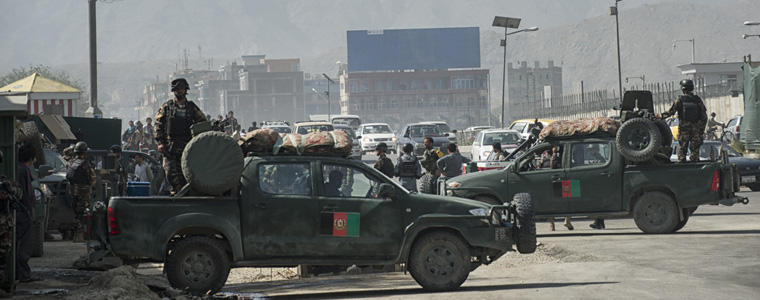
It’s hard to know who committed the assassinations or why. But these cases appear to be classic examples of a larger problem emerging at the sub-governance level across Afghanistan. The triple whammy of NATO-coalition force withdrawals, presidential elections, and the potential withdrawal of Hamid Karzai from the political scene by the end of 2014 has created a cauldron of uncertainty. As a result of these pressures, local level stability is eroding, and the political space needed for sustainable democratic progress or peace to emerge is being squeezed out. Even as much of the attention of the top Afghan and international leadership is consumed with the critical issues of transition, peace negotiations, and election processes, at the local level, the seams are fraying.
In the past two years, the threats to peace and security in Afghanistan have fractured, metastasized, and localized. Several years ago the conflict was often described, perhaps too narrowly, in binary terms: the Taliban on one side versus the Afghan government and the international forces backing it on the other. Now, the average Afghan is trapped in the middle of any number of antagonists. In addition to attacks by the Taliban and its affiliates, ordinary citizens and activists are beset by extortion rackets, gangs and a host of new predatory and often abusive belligerents, some of them connected to government officials.
The 2014 changing of the guard that the elections and international troop withdrawals seem to promise has set off an intense competition for supremacy at a local level across Afghanistan. This has created incentives for many new and former powerbrokers to begin ‘arming up,’ either as a power grab or to intimidate others from doing so. In the past two years, while the international community has been preparing the Afghan National Army and the Afghan National Police to take over security overall, de facto control in many areas has been ceded to militias. These local armed groups have varying loyalties and motivations, but rarely work in the interest of the local community.
The push by the NATO coalition to establish and support local community militias such as the Afghan Local Police (ALP) has inadvertently contributed to these local conflict dynamics, in some places helping create the conditions for rule by force rather than rule of law.
The writ of the state – while never strong – is weaker than ever now in its ability to prevent the deterioration of rule of law at the local level. In the face of impending troop withdrawals and uncertainty surrounding political control after Karzai’s exit, state credibility has weakened. Further, targeted assassinations and killings by all sides, patterns of migration, new social and economic dynamics, and external interventions in local economic and governance structures have eroded traditional power structures that acted as brakes on the escalation of conflict.
Amid the jockeying among local powerbrokers, journalists report more harassment, threats, and restrictions. The activities of NGOs– whether political or not – are more heavily watched and scrutinized, particularly if they work with internationals. Even fairly apolitical activities are now sensitive, and local leaders on issues like women’s rights or peace and reconciliation find themselves even more vulnerable, as those targeted elders did.
So, while the current climate of uncertainty has bred new security risks, it has been even more devastating for initiatives related to governance, rule of law, human rights, and development.
What can be done about this now?
A relatively legitimate and peaceful transfer of power from Karzai to a successor will be critical, but elections are still a long way off. In the meantime, the international community must be particularly conscious of activities or statements that might fuel the trend toward local re-militarization and fracturing of government authority.
Proposals to double the number of ALP are among the clearest examples of such risks. Large-scale programs or aid in local areas where this intense jostling between powerbrokers is occurring may be well-intentioned, but only feed local violence and competition. Research shows that aid can feed cycles of violence. Instead, we need to support and protect the fundamental elements of civil society such as legal specialists, journalists and respected elders who have been working to plant the long-term seeds of peace.
Erica Gaston is a senior program officer in USIP’s Center of Innovation in the Rule of Law.



